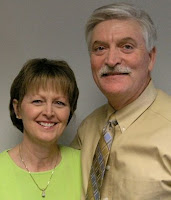 Jeanne Straus
Jeanne Straus,
right, the president of Monroe, N.Y.-based Straus Newspapers, had a question for her fellow weekly publishers in the New York Press Association when she took over as president on Friday: "What do Rupert Murdoch of News Corp., Roger Ailes of Fox News and Strauss Zelnick, the investment banker, all have in common?"
I said, "They're all rural publishers," thinking that Zelnick might be one. Two out of three wasn't bad. As Straus noted and has been
reported, Ailes recently bought the Putnam County News and Recorder in Cold Spring, N.Y. And she noted that News Corp. recently bought weeklies in Queens, Brooklyn and the Bronx. She could have also noted that Murdoch
decided not to sell Ottaway Newspapers, a former Dow Jones subsidiary that has weeklies and a large rural clientele.
Answering her own question, Straus said the three men "are all headed our way – to the local community newspaper business.
Strauss Zelnick said in January of this year that he wanted to invest more in 'smaller businesses … that have digital components.' And apparently he believes in old line media companies because he thinks although we don’t currently have the answer yet on the digital business – we will eventually," Straus said. "So my talk to you today is really a pep talk. Some pretty savvy media watchers think you – and I – are perfectly positioned for the future – small, local media companies with a digital component." For her full remarks,
click here.
The digital component was my topic the next day, at a presentation arguing that weekly newspapers need to enter the 24/7 world: "For decades now, Americans have grown more accustomed to getting their news for free: First from radio, then TV, then from the Internet. (I say people get news free from the Internet, because while they pay for Internet access, there are plenty of free news sites.) Now, on top of the phenomenon of news for free, is the phenomenon that is already changing weekly newspapering: Americans are increasingly expecting to get their news immediately. Increasingly, your readers simply will not understand why they have to wait several days to read in your newspaper the local news that they heard about at the grocery, the post office, the bar or the coffee shop. There will be a demand for immediate local news, in the form of text, and someone will fill it." (
Read more)
Also at the conference, the publishers voted to add this to the NYPA by-laws: "NYPA members are urged to conduct business with high ethical standards and practice good journalism ethics as exemplified by the Society of Professional Journalists'
Code of Ethics."




